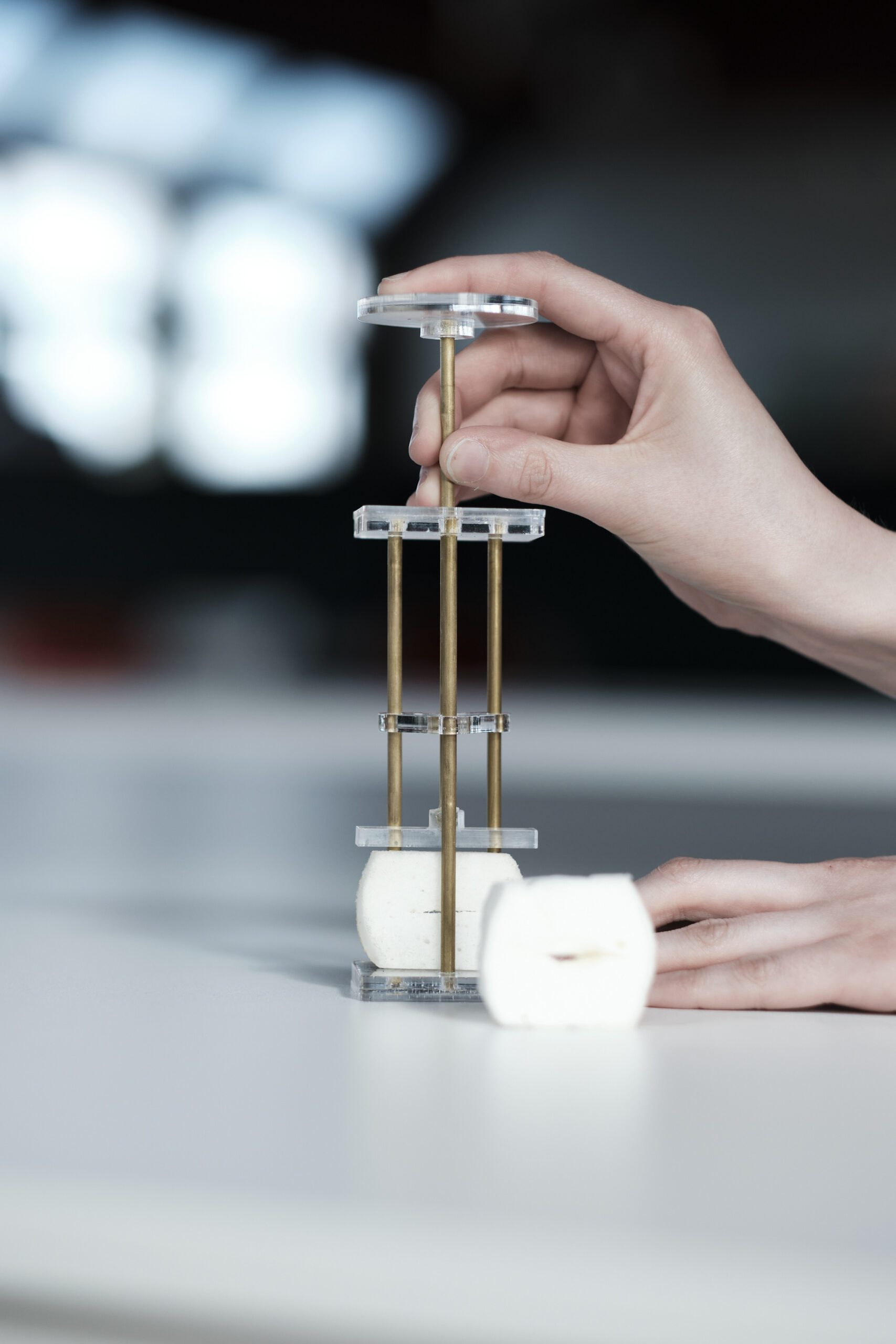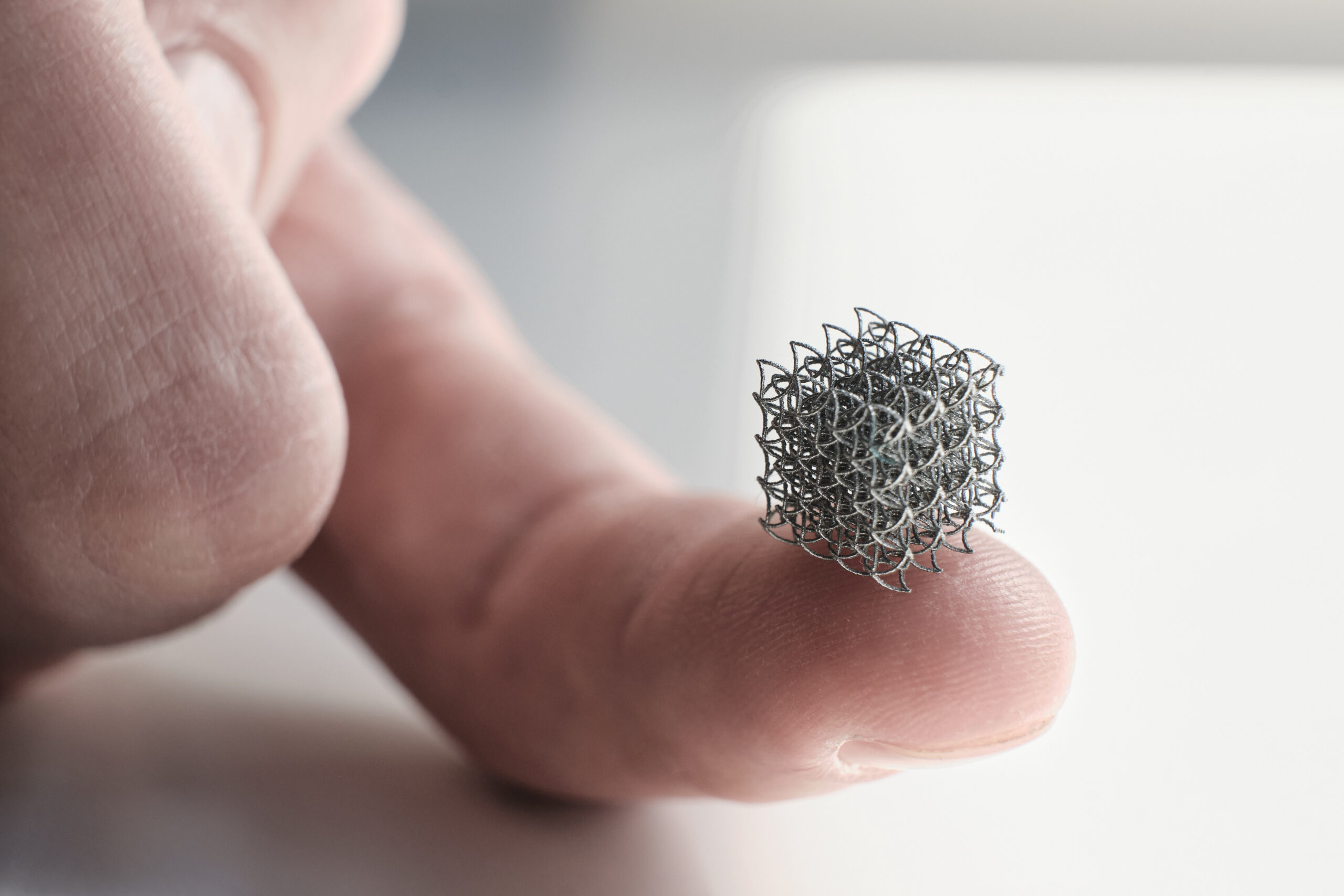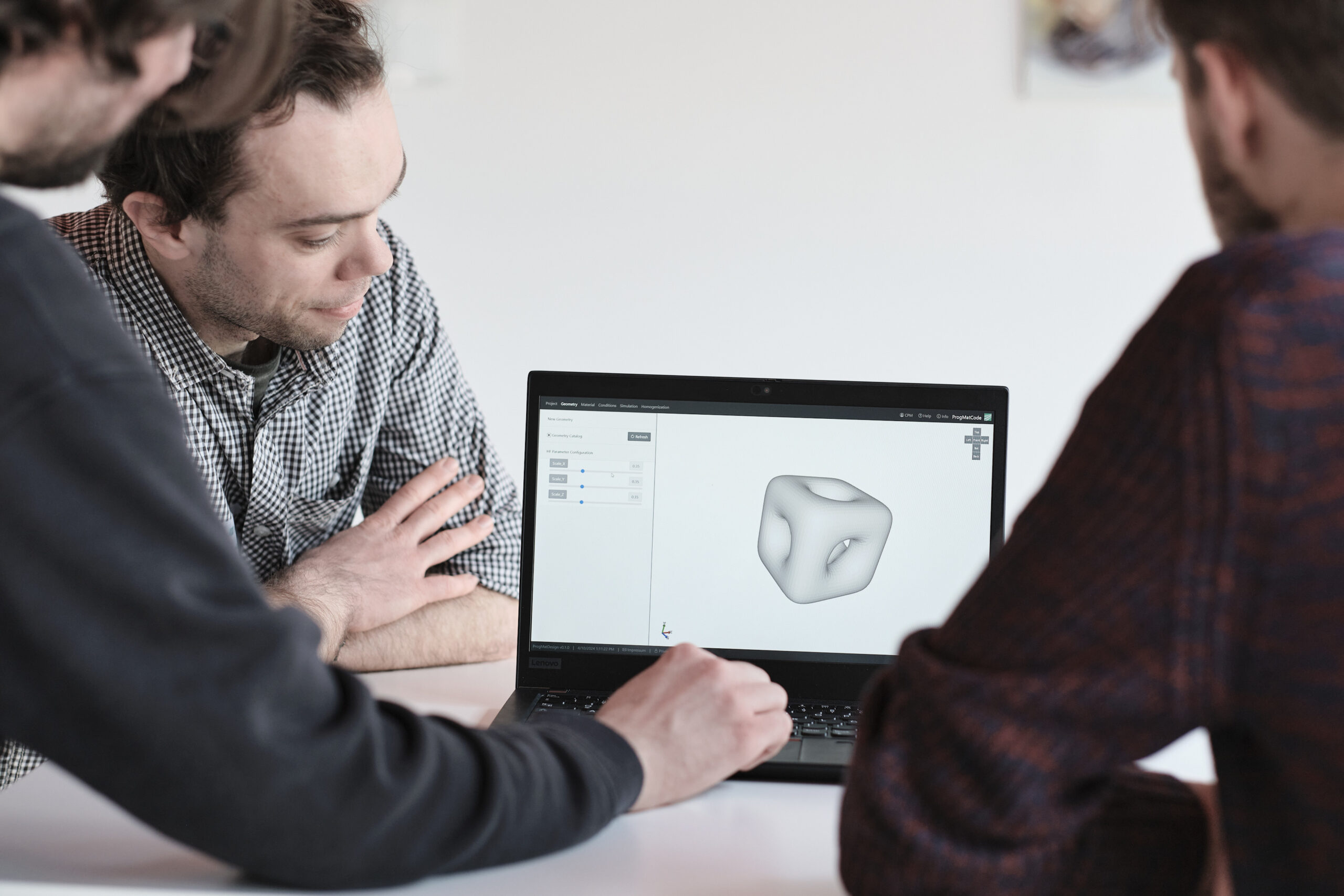Topics
Programmable material permeability
Filter materials and membranes that enable different properties such as flow parameters or active ingredient release depending on the presence of deposits or biological foreign bodies could bring about radical change. Given the enormous potential for economic savings, the programmable materials cluster is working on innovative methods for controlling and programming the permeability, selectivity, and porosity of membranes.
Read more
Programmable friction
The vision of this thematic focus is to program friction systems so that they always operate in the optimal tribological state across the entire range of application parameters. Particular attention is being paid to new approaches that make friction properties controllable through optically or electrostatically induced changes.
Read more
Programmable shape changing and mechanics
In this focus area, the cluster is researching the development of programmable materials based on mechanical unit cells. This includes the search for functional elementary structures, a complete understanding of their programming, and the optimization of the manufacturing processes for unit cells.
Weiterlesen
Manufacturing and upscaling
This focus area deals with the development of production processes for programmable materials in order to manufacture them cost-effectively and use them in components. The members of the research team are primarily looking at materials that are programmable in terms of their mechanical properties and can, for example, undergo a predefined change in shape in response to an external trigger.
Read more
Product development with ProgMatCode
Programmable materials enable a change in material properties over time via their internal structure. If this change is initiated by a corresponding trigger, the material performs the previously programmed function. Programmable materials thus enable a completely new class of technical products in which functional complexity no longer defines the complexity of the system.
Read more